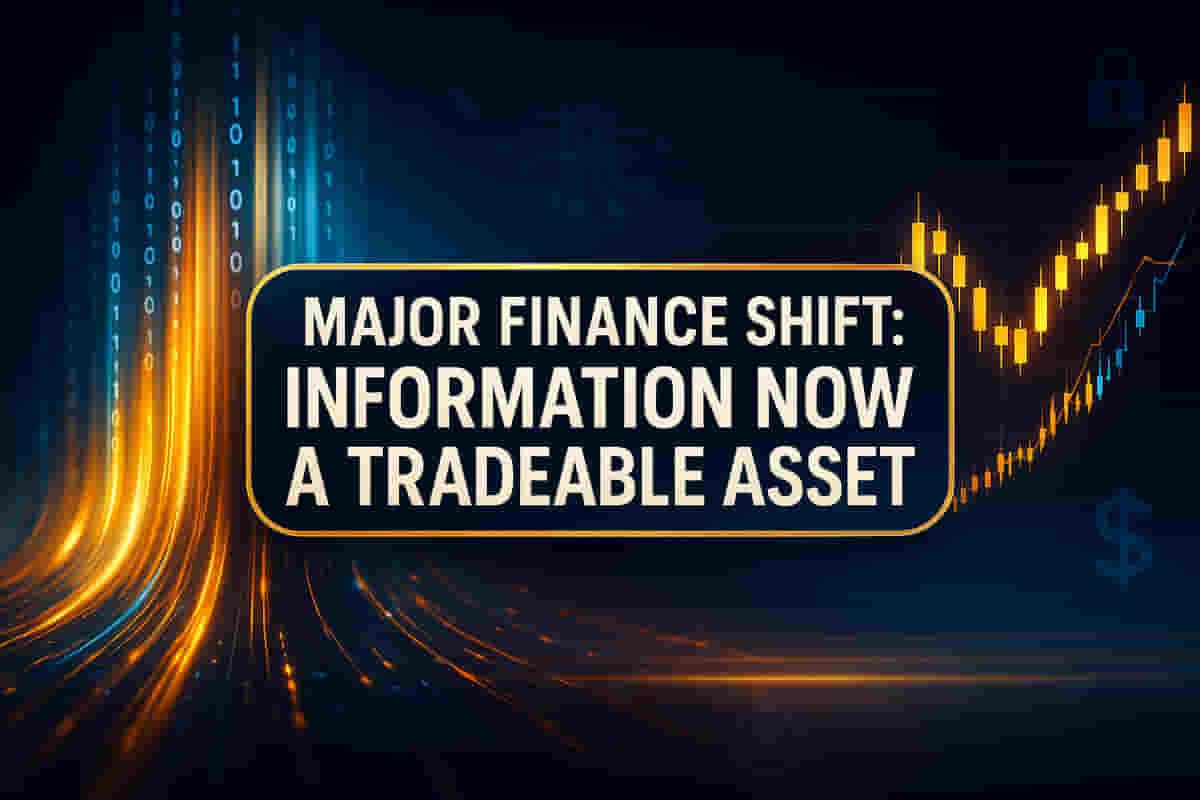Mainstream Finance Embraces Prediction Markets: ICE Investment Validates Information as Asset Class
Economy
|
31st October 2025, 12:52 AM

▶
Short Description :
Detailed Coverage :
Intercontinental Exchange (ICE), a major global finance institution and operator of the New York Stock Exchange (NYSE), has made a significant investment in Polymarket, a prediction market platform built on blockchain technology. This investment marks a critical juncture where mainstream finance officially recognizes information itself as a valuable asset class. Prediction markets allow users to trade financial contracts whose value is tied to the occurrence or non-occurrence of a specific future event, effectively converting dispersed knowledge into market prices. For instance, a contract paying $100 if India wins the 2027 Cricket World Cup would trade at a price reflecting the market's perceived probability of that outcome. Historically, platforms like the Iowa Electronic Markets have demonstrated the efficacy of prediction markets in forecasting events. Modern blockchain-enabled platforms such as Polymarket, Kalshi, and Manifold have revived and expanded this concept, offering global participation and transparent settlements. Kalshi operates under CFTC regulation, covering economic indicators, while Polymarket lists markets across politics, technology, and weather. ICE's strategic stake in Polymarket is a powerful endorsement, suggesting these markets could evolve into tools for aggregating intelligence, forecasting outcomes, and pricing uncertainty, similar to traditional derivatives. Potential applications are vast: governments could forecast economic trends or policy adoption; companies could hedge against regulatory risks; central banks might monitor inflation probabilities; and sustainability-focused contracts could provide early warnings on environmental risks. While India has legal restrictions under the Public Gambling Act of 1867 and Securities Contracts (Regulation) Act of 1956, its robust fintech infrastructure presents an opportunity for regulated information markets. The International Financial Services Centres Authority (IFSCA) could facilitate pilots for macroeconomic or policy-linked contracts. This approach mirrors India's successful transformation of other initially regulated or prohibited instruments into global innovations. The key is framing these as 'probability exchanges' that quantify sentiment and synthesize collective intelligence, rather than mere speculative ventures.
Impact This news has a substantial impact on the financial industry by validating information as a new asset class and legitimizing prediction markets as sophisticated financial instruments. It encourages innovation in risk management, forecasting, and market intelligence. Rating: 8/10
Difficult terms explained: Prediction Markets: Platforms where users trade contracts whose value depends on the outcome of a future event. They aggregate collective intelligence to forecast probabilities. Asset Class: A category of financial instruments or investments, such as stocks, bonds, commodities, or, in this case, information. Intercontinental Exchange (ICE): A global network of exchanges and clearing houses that provides financial market data, trading, clearing, settlement, and surveillance. It operates the NYSE. Blockchain: A distributed, immutable ledger technology that records transactions across many computers, making them secure and transparent. It's the backbone of cryptocurrencies and many decentralized applications. Contracts: Agreements between parties that specify terms and conditions. In prediction markets, these contracts derive their value from future event outcomes. Derivatives: Financial instruments whose value is derived from an underlying asset, group of assets, or benchmark. Examples include futures, options, and swaps. Prediction markets are being viewed as a new type of derivative. CFTC: The Commodity Futures Trading Commission is an independent agency of the U.S. government that regulates the U.S. derivatives markets. Iowa Electronic Markets (IEM): One of the earliest and longest-running prediction markets, primarily used for academic research on forecasting political and economic events. Policy Analysis Market: A proposed U.S. government project that aimed to use prediction markets to forecast geopolitical events, which was later canceled due to controversy. Kalshi: A regulated U.S. prediction market platform offering contracts on a range of economic and political events. Polymarket: A decentralized prediction market platform operating on blockchain technology, known for its broad range of market categories. Manifold: Another decentralized prediction market platform that allows users to create and trade on various future events. IFSCA: The International Financial Services Centres Authority is a statutory body established by the Government of India to regulate financial services in International Financial Services Centres (IFSCs) in India. KYC: Know Your Customer is a process used by businesses to verify the identity of their clients. In financial services, it's a regulatory requirement to prevent fraud and money laundering. Oracles: In the context of blockchain and prediction markets, oracles are entities that provide external data to smart contracts, ensuring the accuracy of event outcomes for settlement.